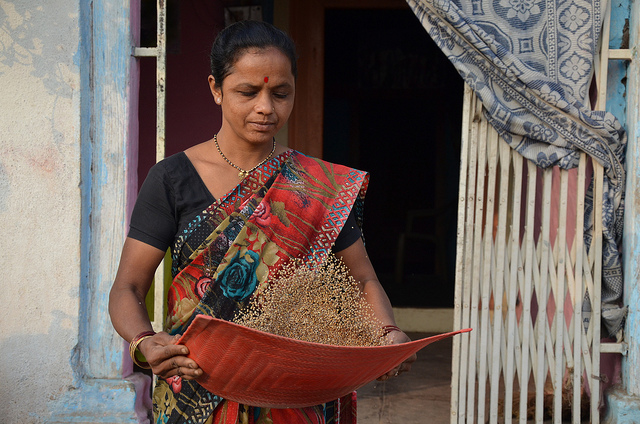The following post by IFPRI Director General Shenggen Fan was originally published on Humanitas Global Development’s Hunger and Undernutrition blog.
Hunger and undernutrition can be eliminated by 2025. Meeting this aspirational target is an immense but not insurmountable challenge, and it needs to receive adequate attention in the post-2015 development agenda.
The world has made some headway in achieving the Millennium Development Goal of reducing hunger, but global progress in halving hunger is not on track for the 2015 deadline. Close to 850 million people worldwide—about 1 in 8 people on the planet—still go hungry every day, especially in Africa south of the Sahara, Western Asia, and Southern Asia. Moreover, approximately 2 billion people suffer from deficiencies in essential vitamins and minerals such as vitamin A, iron, and iodine—a condition referred to as “hidden hunger” because the effects are often not visible in the short-term. The fight to end hunger and undernutrition must therefore continue beyond 2015. It must be a top priority, in addition to environmental sustainability, within the post-2015 development agenda.
Future progress in reducing hunger and undernutrition is not only a global ethical duty but it also makes economic sense. Hunger and undernutrition, by weakening the mental and physical development of children and adolescents and lowering the work capacity and incomes of adults, lead to huge social and economic costs. According to estimates by the Food and Agriculture Organization (FAO), hunger and undernutrition cost the global economy an estimated 2–3 percent of global gross domestic product (GDP), equivalent toUS$1.4–2.1 trillion per year. The economic returns to investments that improve food security and nutrition are also high. For example, recent research by the International Food Policy Research Institute (IFPRI) shows that every dollar invested in the reduction of stunting in India yields about $34 in returns. In Nigeria and Kenya, the returns are about $27 and $19.
These are the staggering consequences that hunger and undernutrition have for human development and ultimately for economic growth. That is why their elimination needs to be made a priority. To end hunger and undernutrition by 2025, governments and donors must allocate sufficient resources and pursue appropriate policies and investments. The impressive progress that countries such as Brazil, China, Thailand, and Vietnam have made in reducing hunger and undernutrition over the last several decades suggests that this goal is possible. But a one-size-fits-all strategy is not the answer. Successes in China and Vietnam, for example, are linked to an agriculture-led strategy. In Brazil, success has been primarily driven by a strategy of social protection programs and targeted nutrition interventions for those most in need. Successful hunger reduction in Thailand, however, has been catalyzed by a combination of these two main strategies. Other developing countries can learn from these experiences as they chart their own paths to a food- and nutrition-secure future.
Important approaches that can help to accelerate the pace of hunger and undernutrition reduction include:
- Country-led strategies and investments. Adapting policies to the local context can increase the efficiency and sustainability of policies aimed at ending hunger and undernutrition. But national governments must allocate adequate budgets to support the development and implementation of these strategies.
- Evidence-based policies and policy experiments. National strategies should be guided by on-the-ground evidence. Pilot projects and policy experiments are important to provide decisionmakers with information on which investments and processes work best before scaling-up successful policies and programs.
- Knowledge sharing and transfer. Lessons from the successful implementation of policy, institutional, and technological innovations in developing countries can provide guidance for positive changes to reduce hunger and undernutrition. Successful developing countries should especially engage in knowledge-sharing and transfer with other developing countries.
- Strong accountability. Clear and transparent mechanisms and tools are needed to hold relevant actors accountable for their food security and nutrition commitments at the global, national, and sub-national levels. Quality, reliable, and timely data and measures on hunger and undernutrition alongside improved analytical capacity play an important role in monitoring the progress and impact of food and nutrition interventions. Robust accountability systems require a clearly defined baseline, independently measured impacts, and performance assessments based on progress made.
- Enhanced role for private sector. The private sector has the potential to generate sustainable solutions to ending hunger and undernutrition but only when supported by the right conditions and incentive structure. The engagement of the private sector requires a business-friendly environment, including a sound legal and regulatory framework to ensure that the private sector’s activities are socially and environmentally responsible.
Ending hunger and undernutrition by 2025 should have top priority in the post-2015 development agenda. Concerted actions and collaboration by all stakeholders, including national governments, donors, civil society, and the private sector, are needed to make this happen.







